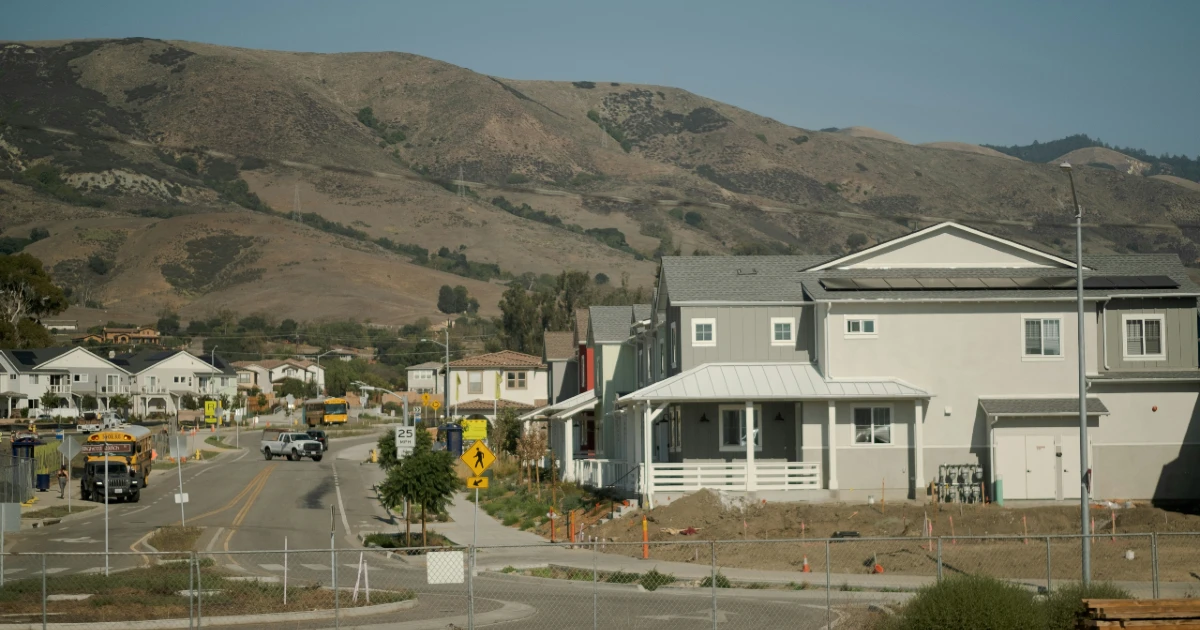As an owner of a multi-family apartment complex, you face more risks than a traditional homeowner, with events such as loss of income from rent and lawsuits stemming from injury more likely to affect you. Finding insurance that will protect you from all these risks seems daunting. Whether your building is a triplex, fourplex, or hundreds of units, it is essential you have the right coverage. In this guide, we walk you through everything you need to know about finding and buying apartment insurance.
What Type of Insurance Do Apartment Buildings Need?
Let’s start with the basics: What type of insurance do you even need for your apartment? A standard homeowners insurance policy will not cover your property, even if it’s a smaller apartment building with four or more units. Because your apartment building is also a business, and because you’ll have more liability, you’ll want to look into a few types of coverage, including:
- General Liability Insurance
- Commercial Property Insurance
- Business Income
- Umbrella Insurance
- Ordinance and Law Endorsement
- Business Owners Policy
We’ll break down these individual coverages below, but you can save time by looking into a landlord insurance policy. A landlord insurance policy will include general liability, property, and even loss of rent coverage.
Get a same-day apartment building insurance quote today.
General Liability Insurance
Liability insurance is of the utmost importance as an apartment building owner. Failure to obtain adequate coverage could leave you with hundreds of thousands of dollars in lawsuits and medical bills. General liability covers you in the event of someone getting injured and suing you for negligence. It can also cover you if a tenant or prospective tenant sues you for discrimination.
Commercial Property Insurance
When most people think of insurance, they think of property insurance, or coverage for the physical structure. Most property insurances, from homeowners to apartment building insurance, cover damage from the following events (called named perils):
- Fire and smoke damage
- Windstorms
- Vandalism
- Lightning
- Vehicle and aircraft damage
- Explosions
- Riots
As an apartment building owner, you may have several structures on your property, such as garages, storage buildings, swimming pools, fences, and signs. These are also covered in addition to your main apartment building.
Endorsements for other perils can be added if you live in a higher-risk area; for example, earthquake coverage and mold coverage are popular for those with properties near a fault line or near water. And some endorsements – like flood coverage – may actually be required by lenders if you have a mortgage.
Business Income Insurance
Next, consider business income insurance (BIC), also known as business interruption coverage. Your income is tied to your apartment and in the event that something happens to your tenants or building, you may find yourself losing money. With business income insurance, you can receive loss of income coverage to reimburse you for some or all of the time it takes to repair unit damages (such as smoke, fire, burst pipes) that make your unit(s) unrentable.
A BIC policy may also cover employee wages and payroll, along with mortgage and tax payments, if applicable.
Umbrella Insurance
Umbrella insurance provides coverage after your primary policy limits have been met, but it only offers liability coverage and not property coverage. You may not think you’ll need umbrella insurance as you’re a diligent landlord, but even the best landlords may find themselves in court. Situations covered by umbrella insurance might include:
- Tenants injuring themselves on your property and suing you for negligence.
- Squatters injuring themselves on your property and suing you.
- Previous tenants breaking into your building and causing damage.
- Instances in which you, the landlord, are sued by tenants and need to pay legal fees.
Your insurance agent will help you determine how much additional coverage you may need. Umbrella policies can cover claims from $1 million to $15 million – handy for owners of large complexes.
Ordinance and Law
The ordinance and law endorsement can be added to your commercial property policy. This endorsement reimburses you the cost of additional repair or construction of your apartment building in the case of a covered loss – if the additional repair is due to building codes and regulations. In other words, if your 50-year-old apartment building burns down, an ordinance and law endorsement would reimburse you the cost involved with rebuilding to current codes.
For those with older apartment buildings, this endorsement is a worthy investment. Ordinance and law coverage consists of three parts, which may be added together or individually:
- Coverage A: Undamaged Portion of the Building. In some cases, you may be required by a building code to replace more of your building than was damaged. For example, if wind damages 30% of your roof, you may need to replace the whole roof. General property insurance will only reimburse the 30% that was damaged, whereas Coverage A of Ordinance and Law would reimburse for the whole roof.
- Coverage B: Demolition. Following the above example, the demolition costs to replace the whole roof would also not be covered under a general policy and thus, this coverage would reimburse you for the whole roof’s demolition cost.
- Coverage C: Increased costs of construction. This coverage reimburses you the cost of updating your property to comply with local laws and building codes following a covered loss. For example, if your property was damaged by an earthquake, you may need to rebuild to meet newer earthquake building standards. Instead of that money coming out of your pocket, this coverage would kick in.
Business Owners Policy
If you own a smaller building, a Business Owners Policy (BOP) might serve you best. A BOP is a type of insurance coverage businesses use for liability and property coverage. BOPs combine three essential coverages into one policy:
- Property damage and peril
- General liability
- Business interruption
A BOP is designed for small to medium businesses (specifically, for businesses with less than 100 employees), so if you own a large apartment complex or multiple properties, you may want to consider a commercial policy instead.
However, a BOP will not cover worker’s compensation, professional liability, employment practices liability, and endorsements such as flood and earthquake insurance. Most of these may not apply if you are a small landlord, but always check with an insurance agent to learn if you need additional coverage.
How Much Does It Cost to Insure an Apartment Building?
There’s no magic apartment building quote. The cost to insure an apartment varies, depending on an assortment of factors. With an apartment building quote, an insurance agent will look at information such as:
- Location of the property
- Age of the property
- Number of units
- Condition and age of roof and mechanical systems
- Type of building materials used in construction
- Security features and fire protection systems
You and your agent should discuss any additional endorsements too, from umbrella to ordinance and law, which, while necessary, may affect your total policy cost.
Common Apartment Building Risks
When looking for coverage, it’s important to know what you may be more at risk for as an apartment building owner. Once you know these risks, you can take steps to mitigate them, prepare for them, and protect your property from them.
Some of the most common risks apartment building owners face are:
- Tenant or employee injury on-site due to negligence
- Theft or vandalism by a tenant or employee
- Discrimination lawsuits
- Natural disasters such as storms, fires, or floods
How to Reduce Risk as an Apartment Building Owner
Apartment building insurance will cover you in most cases – granted you have the proper type of coverage. However, as a responsible business owner, you’ll want to keep your risk low and reduce the need to file a claim. Here are a few tips to reduce your risk:
- Keep your property up-to-date. Fix any appliances or mechanicals that could be a fire hazard, clear snow in the winter, and eliminate environmental hazards.
- Update safety equipment. Replace old or malfunctioning smoke detectors and fire extinguishers. Install security cameras around the property too, to prevent vandalism and theft.
- Follow landlord laws. Avoid any unnecessary legal fees or loss of rent by respecting your tenants’ privacy and following the law.
- Alert tenants to any hazards. Help your tenants stay safe by communicating about any ongoing maintenance work, hazardous weather, or other impactful events.
- Upgrade as needed. Pay attention to building codes and regulations. Make sure any contractor you hire is fully licensed and bonded, and that proper permits are pulled. Not only will this save you legal trouble, but it’ll ensure that all work done on your building is safe for tenants.
- Get adequate coverage. Lastly, the best way to reduce your risk is to have proper insurance coverage. Reduce cost of catastrophic events, damages, and more with apartment building insurance.
Protect Your Building and Yourself with Apartment Building Insurance
Apartment building insurance does more than protect the physical apartment building – it protects you as a landlord and business owner. Whether you need a business owners policy, or a more robust package of liability, ordinance and law, and property coverage, we want to make sure you are educated on your options and getting the coverage you need.






.png)
.jpg)
.jpg)


.png)